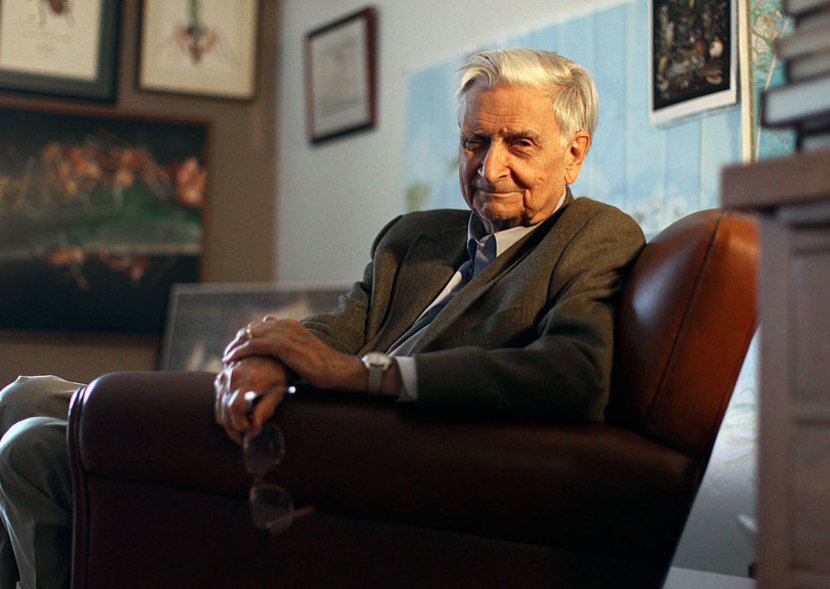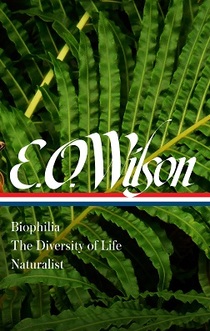
Major works:
On Human Nature • The Ants • The Diversity of Life • Consilience • Naturalist
“Wilson at his best is a writer of great skill and aplomb. His books for the general public . . . flow with high narrative skill and expository eloquence, offering many passages of keen character portrait, self-deprecating humor, emotional impact, and elegant description. He has a voice and he knows how to use it. He has the chops. For that reason, reading Wilson is more than just informative, stimulating, often provocative, sometimes aggravating, and always challenging to comfortable assumptions. It’s also a literary pleasure.”
—David Quammen, Introduction to Edward O. Wilson: Biophilia, The Diversity of Life, Naturalist
Biophilia
E. O. WilsonThe naturalist is a civilized hunter. He goes alone into a field or woodland and closes his mind to everything but that time and place, so that life around him presses in on all the senses and small details grow in significance. He begins the scanning search for which cognition was engineered. His mind becomes unfocused, it focuses on everything, no longer directed toward any ordinary task or social pleasantry. He measures the antic darting of midges in a conical mating swarm, the slant of sunlight by which they are best seen, the precise molding of mosses and lichens on the tree trunk on which they spasmodically alight. . . . He listens for any sound that breaks the lengthy spells of silence. From time to time he translates his running impressions of the smell of soil and vegetation into rational thought: the ancient olfactory brain speaks to the modern cortex. The hunter-in-naturalist knows that he does not know what is going to happen. He is required, as Ortega y Gasset expressed it, to prepare an attention of a different and superior kind, “an attention that does not consist in riveting itself to the presumed but consists precisely in not presuming anything and avoiding inattentiveness.”
